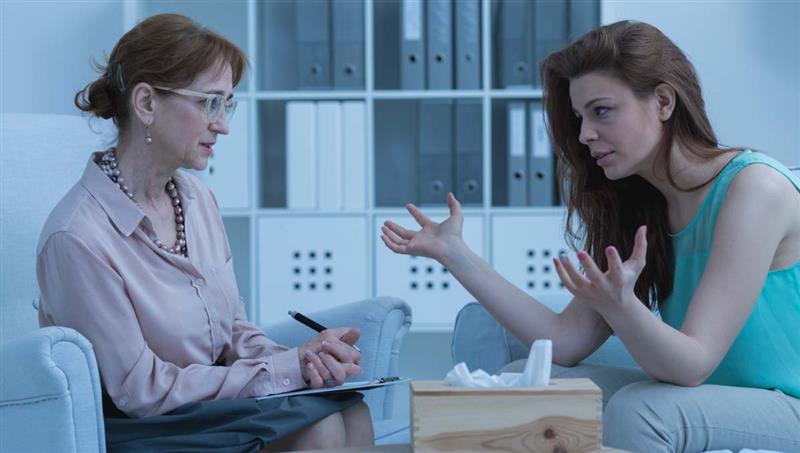To some extent, anxiety is normal among many individuals. When stress is severe, it becomes crushing and can be quite disabling. High anxiety arises when individuals’ reactions to perceived stressors go beyond the normal range. In the United States, crippling anxiety disorder will be universal across more than a third of the population in a given lifetime.
Crippling anxiety is one type of anxiety that is extremely disabling, and little things that are ordinarily easy to do may seem impossible. It means that such an individual is always tense and cannot relax or concentrate. Continue reading as we’ll discuss more interesting facts, tips, and signs of crippling anxiety. Stay connected with us!
What is Crippling Anxiety?
Crippling anxiety is a form of anxiety that tends to be very severe and can generate a lot of disability in daily activities. It is indicated by excessive concern, even though the probability is low, and it is accompanied by other features such as difficulty concentrating, an increased rate of irritability, muscle tension, sleep anxiety, and sleep disturbances.
The reason for crippling anxiety disorder is still unknown, though research shows that both genetics and environmental factors cause it. In most cases, the condition presents particularly in patients’ ability to function or perform in their workplaces, social contexts, and interpersonal relationships.
Crippling Anxiety Symptoms
Crippling anxiety symptoms may include:
- Fear, panic, or even the sense that something is uneasy.
- Feeling “on edge”.
- Growing intolerant and, at times, even angry.
- Difficulty sleeping.
- Headaches and hangovers, nausea, and stomach upset.
- Dizziness, feeling unsteady.
- Pain in the head, neck, shoulders, or back, tired muscles.
- Racing thoughts.
- Nightmares.
Crippling Anxiety and Depression
You don’t have to live with crippling anxiety indefinitely. It’s treatable and responds well to treatment, but it might be difficult when you’re preoccupied with what the day ahead holds. Remember that everyone is unique and has their own needs. Working with a mental health specialist can help you discover which treatments are most effective for you.
Crippling anxiety disorder is a popular term used to describe severe anxiety. It feels incapacitating or so severe that it interferes with your daily life. Most people experience depression in their daily lives, such as when they are apprehensive about a presentation or frustrated by being caught in traffic. However, if your anxiety gets so extreme that it makes it difficult to complete daily duties, it may indicate that your anxiety requires treatment.
How to Deal With Crippling Anxiety?
Anxiety and stress are a part of everyone’s life, regardless of a person’s age and gender. Individuals go through tension and worries in day-to-day life; for instance, before a big presentation, the individual would be feeling jittery, and the same individual would get annoyed that they are trapped in traffic. However, if owing to your anxiety, you feel hindered in executing your day-to-day activities, then it may be a clear indication that your anxiety might need some attention.
Cognitive conclusions from research have it that diaphragmatic breathing, also known as breathing from the belly, is very useful in helping to curb anxiety and dissipate tension and stress.
- To get the benefits of this coping technique, try the 4-7-8 method.
- Blow air out and try to emphasize/pronounce it with a whooshing sound.
- Take a small breath at the rate of counting four.
- Breathe in and count to seven in your mind, and then breathe out slowly for the same amount of time.
- Breathe out from the mouth slowly and steadily and with the sound ‘whoosh’ for at least 8 seconds and then immediately jump up.
Tips for Dealing with Crippling Anxiety
1. Focus on Physical Health
Taking care of mental well-being cannot begin with anything other than taking care of bodily health. It is also indicated that exercise leads to an improvement in mood due to the secretion of endorphins, and if you are stressed, exercising will ease the feeling of stress. Also, if you are having difficulties sleeping, then exercising will help. They all say that there is no better diet than the professional one because it is packed with nutrients that the brain would require to regulate emotions. Proper hydration shall guarantee the efficiency of the organ, which is the brain and which can and shall work.
2. Exercise
For anxiety, you can do so much on your own. Perhaps one should consult with experts and doctors if anxiety is a case in which one’s daily life is affected. You may then discuss the best anxiety treatment plan for you with your mental health expert, which may or may not include anxiety medicines or another form of therapy in the future. A sufficient amount of sleep, as shall be emphasized, will facilitate recovery of the brain, the reduction of stress, and memory formation. Physical activity, healthy eating, regular water intake, and a healthy amount of sleep may sound rather primitive as the foundation of enhancing mental health and the quality of life.
3.Understand Your Feelings
Take your meals, hydrate, and rest well because your body and mind are interrelated. It requires one to take enough water to ensure that the brain is always functioning at its best and food to ensure that the brain has all the nutrients it requires to function as needed in all ballistic and moods. It would also be good if you also ensured you had enough rest in terms of sleep to allow proper functioning of the brain and consolidate stress and memories.
4.Identify the Causes
Perhaps the only missing link could pertain to the cause of poor mental health because, in many instances, multiple causes are experienced. The main biological factors comprise human nature and any dysfunction in the chemical balance of the human brain or any physical ailment that the patient might be suffering from. There are external conditions that also act as triggers of mental health complications; these include unhealthful relationships, financial difficulties, and lack of social support. Outlining these factors is central to the development of both curative and proactive strategies.
5.Examine Your Thoughts
Anxiety is known to make people tend always to consider the worst possible thing that could happen. To overcome such thoughts, reflect on their applicability. You can assume that you have a lot of concerns about a big business meeting coming up. Rather than state, “I’m going to bomb,” say, “I have butterflies, but I am willing.” Such a person argues that some aspects will be good, whereas others will be bad. Establishing a practice of evaluating your worries assists in rewiring the brain and searching for a logical approach to managing your distressing thoughts.
Crippling Anxiety Treatment
It’s also important at this point to note that self-directed treatment is only possible to a certain extent when dealing with anxiety. If you are going through the above symptoms of anxiety, it becomes advisable to seek professional help and talk to a healthcare provider.
- Most of the patients with anxiety disorder are prescribed anxiolytics and antidepressants characterized by selective serotonin reuptake inhibitors or serotonin-norepinephrine reuptake inhibitors. All the medications help in regulating neurotransmitters that cause mood and anxiety changes in the brain.
- Exercise, adequate sleep, and proper nutrition help in reducing the number of anxious symptoms that one can ever experience.
- One can use mindfulness meditation, breathing, and relaxation responses such as pulling and releasing muscles to help with this.
- It’s always comforting to talk to someone who has undergone the same circumstances and can also offer words of encouragement and advice on how to proceed.
Important Note:
All the details provided in this article aim for informational and educational purposes. Please don’t consider it medical advice or a substitute for a psychiatric evaluation. For professional guidance and treatment, consult with our licensed healthcare professionals at MAVA Behavioral Health.
Takeaway
Everyone in their lifetime is bound to feel stressed or have some level of anxiety. If this stress or anxiety is intrusive and torturous to the extent that it interferes with your normal functioning, then it could be a crippling anxiety disorder. Considerable anxiety has a list of symptoms, from shortness of breath and tiredness to feelings of fear or worry. Fear is a type of disorder that has some negative effects on humankind if diagnosed and treated insufficiently. It is crucial to seek assistance from a specialist to either reduce or cope with the anxiety. Thus, you can visit MAVA Behavioral Health for better help and treatment.









